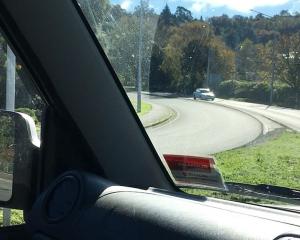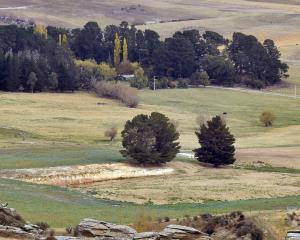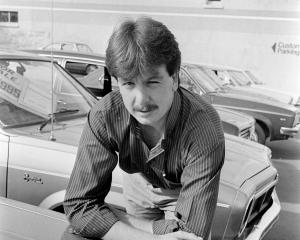
It looks cold in Dunedin — I say that as I sit in Chandigarh airport waiting for my flight to Delhi and the temperature is warm, to say the least.
I have never been to Chandigarh before and as much as you understand that India is many different countries in one, with multiple and complex layers well beyond my peeling ability, coming to Chandigarh has been a reminder to me not to think of India as amorphous.
It is beautiful up here, and the people I have met have been wonderful, yet it feels so different from the India I have experienced before. It is hard to articulate how and why and I remind myself that going out helps you see "in" more clearly. India is on a juggernaut path. The changes even since I was here last, just prior to Covid, are extraordinary.

Indians understand they are a juggernaut and there is fierce pride and excitement in that. It has highlighted to me that we New Zealanders have lost some of our pride.
That worries me — the division, lack of direction and lack of ambition as a country is translating into us becoming inward looking and feeling a bit sorry for ourselves.
I have been visiting some of India’s best pharmaceutical companies while here and perhaps, this industry, more than any, showcases the velocity of the Indian juggernaut.
The Indian pharmaceutical industry produces 70% of the world’s generic pharmaceuticals and a growing proportion of branded pharmaceuticals. If you buy paracetamol or ibuprofen at the supermarket, there is a good chance it was manufactured in India.
Early on, some of this capability was developed by large internationally owned companies, establishing manufacturing bases in India, but the Indian education system has more than kept up, producing many of the best and brightest in the world.
Now, much of the innovation, manufacturing and branding are Indian owned. Darcy, my business partner, often states that of the handful of the world’s top biochemists he follows, most are India-educated.
This enormous pharmaceutical industry sits upon a platform of India being the world’s largest democracy, doing all they can at a political level to improve the ease of doing business here.
Pharmaceutical and nutraceutical industries are one of the areas where India wants to be world leader. This ambition, combined with having the world’s largest population and the average-aged person being 10 years younger than China’s average-aged person (India’s median age is 28.2), helps you to understand how powerful this juggernaut will become.
The Australian government is making significant moves, supporting its businesses to be less dependent on China for both importing and exporting, through subsidies and grants and presence in market, and India is a big play for it.
In the recent trade agreement between India and Australia lamb exported from Australia into India has no tariff attached; there is a tariff of 33% for New Zealand lamb into India.
New Zealand’s lack of ambition across the political spectrum means we don’t even seem to be having the conversation about the future of our country’s income.
I have long said we are too dependent on China. I hope that China will always be a significant market for us, but we can’t count on that for many reasons — we need a plan A, B and C and the United Kingdom should not be that plan.
Whatever the plan, our next prime minister needs to get to India pronto. We need a strategy, resources and action for this market because, oh my goodness, when you are here, the opportunities are beyond thrilling although, in the same breath, slightly overwhelming.
I reach Delhi today, where I have more business meetings before catching up with a dear friend and mentor who was a vice-president of a global company. I know he will ask me so many astute questions that any business strategy I have developed will have to be completely re-examined.
There is one more piece of magic I am hoping for from India: inspiration for what I will buy my wonderful tolerant husband for his 50th birthday.
He deserves a medal, of course, but being someone who is tremendously hard to buy for, I am doubting whether a medal will cut the mustard.
Finding the right gift might be beyond even India’s powers but, always the optimist, Delhi markets, here I come.
— Anna Campbell is the co-founder of Zestt Wellness, a nutraceutical company, and holds various directorships.










